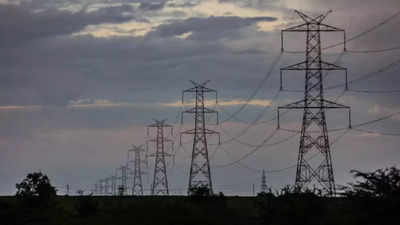India, Bangladesh set to formalise electricity sharing system


NEW DELHI: In a significant move, the Bangladesh government is considering a plan to enter into a cross-border exchange of electricity with India through the Indian Energy Exchange (IEX). The move will formalise the electricity trade and increase the scope of electricity exchanges between the two countries.
The demand for Indian power is rising in Bangladesh which purchased 17.31 per cent more electricity from India worth 4712.91 Taka (Rs 4,150.99) in 2020-21 compared to the previous year.
At present, Nepal and Bhutan buy and sell electricity across borders with India through the IEX. Bangladesh is not yet a part of it but it buys Indian power on a contract basis. Joining the exchange can help each party to trade according to their demand and supply position at a given time. Senior government officials from both countries are engaged in a dialogue to work out the formalities to make the plan happen.
“Indian power is a low-cost alternative to electricity produced in Bangladesh using coal and diesel. The government in Dhaka is paying a high subsidy by purchasing power from private generating companies who use diesel,” a senior Indian government official explained on condition of anonymity.
Electricity flowing from India costs 5.8 Taka kWh compared to the price of 8 Taka charged for coal-based gas and a whopping 52.8 Taka charged by private producers using diesel, according to a presentation made by A.K.Mahmud, Director of Regional Electricity Trade at the Bangladesh Advancing Development and Growth Through Energy (BADGE) to a group of electricity officials.
The cost of power subsidy meant for local private generators works out to around 30 per cent of the total electricity bill for the government in Dhaka. Opting for the cross-border exchange would enable it to reduce the amount by way of subsidy.
The ongoing crunch in the supply of crude after the Ukraine war has also raised questions about whether the diesel-based electricity generating firms would continue to obtain sufficient supplies, and also afford the increased prices. This is another reason why cross-border electricity flow appears attractive to Bangladesh.
It will not be easy for Dhaka to opt for cross-border exchanges because the plan is being resisted by private producers who fear losing a part of their market, informed sources said.
The government may have to find a way to enter the power exchange without hurting the interests of local producers.
The exchange mechanism would initially focus on thermal power supply from India. But the cross-border mechanism also offers an opportunity to Bangladesh to use more green energy in the future. Once the mechanism is in place, Dhaka can ask for solar power from India and hydropower from Bhutan.
To begin with, Indian power will meet only a small part of the requirement in Bangladesh while private power companies will continue to serve a major part of the need. The local government wants to make sure that the business viability of local producers is not affected.
Private generating companies in Bangladesh mostly generate power using diesel. They are paid a fixed rate for a certain level of output but they become entitled to an additional variable rate if they produce more than what has been stipulated.
The existing inter-country HVDC Transmission link between India and Bangladesh is capable of handling over 70 megawatts of additional supplies leaving enough room for Indian power flows. As the exchange mechanism grows, the infrastructure would need to be augmented.




